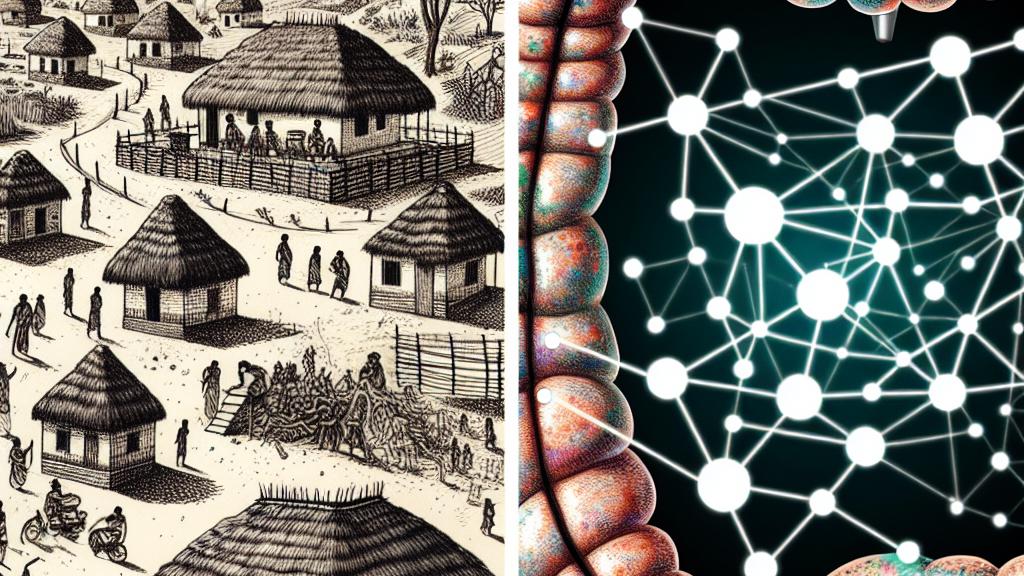Gut Microbiome Influenced by Family and Friends
Overview
- A remarkable link discovered between social relationships and gut microbiome similarities.
- The influence of friendships and family ties on gut bacteria diversity is profound.
- This study showcases the essential role of social interactions in our overall health.

Discovering the Microbial Ties in Honduras
In a fascinating study conducted by Yale University in the isolated villages of Honduras, researchers uncovered a captivating truth: our gut microbiomes reflect not just our diets or genetics, but significantly mirror our social connections! This ambitious project involved 1,787 adults across 18 remote communities. By mapping intricate social networks and analyzing each participant's gut microbiota, the study revealed a striking pattern—individuals shared similar microbial compositions not only with family members but also with friends and even casual acquaintances. This finding shines a spotlight on the idea that social bonds extend far beyond emotional support, intertwining with our biology in previously unimagined ways.
The Impact of Frequent Interactions
The researchers went further, examining how the frequency of social interactions contributes to microbiome sharing. Picture a lively dinner where friends gather around a table, sharing laughter and food; it's these moments that may foster the mutual exchange of gut bacteria. Indeed, individuals who engaged in regular social activities—such as communal meals or group celebrations—exhibited not just emotional closeness but also correlated microbial similarities. Remarkably, two years after the initial research, a follow-up highlighted that those who maintained strong social ties had developed even more aligned gut microbiomes. It's almost poetic to think that nurturing friendships contributes to a healthier gut, reinforcing the age-old saying that “you are what you eat,” as well as “you are who you know.”
Exploring Health Implications
These breakthrough findings pose vital questions about the implications for our health. Firstly, if certain gut bacteria can spread through close relationships, are we more susceptible to sharing diseases associated with our microbiomes? This prospect presents both risks and opportunities. Communities that embrace healthy habits may create a ripple effect, positively influencing their members' health through shared practices and lifestyles. Imagine neighborhoods where people support each other in fitness goals or culinary choices—this collective effort could enhance community health overall! Ultimately, these insights reveal that our social networks are not merely circles of support; they play a crucial role in shaping our biological well-being. Thus, fostering genuine relationships is essential, as connecting with others may just lead to a healthier, more vibrant life.

Loading...